The first Beijing-Shanghai Forum convened at Renmin University of China (RUC) on Nov. 16th, focusing on “Advancing the Development of International Science and Technology Innovation Centers.” Jointly organized by RUC and Shanghai University of Finance and Economics (SUFE), the forum served as a platform to discuss strategies for establishing world-leading innovation in Beijing and Shanghai.
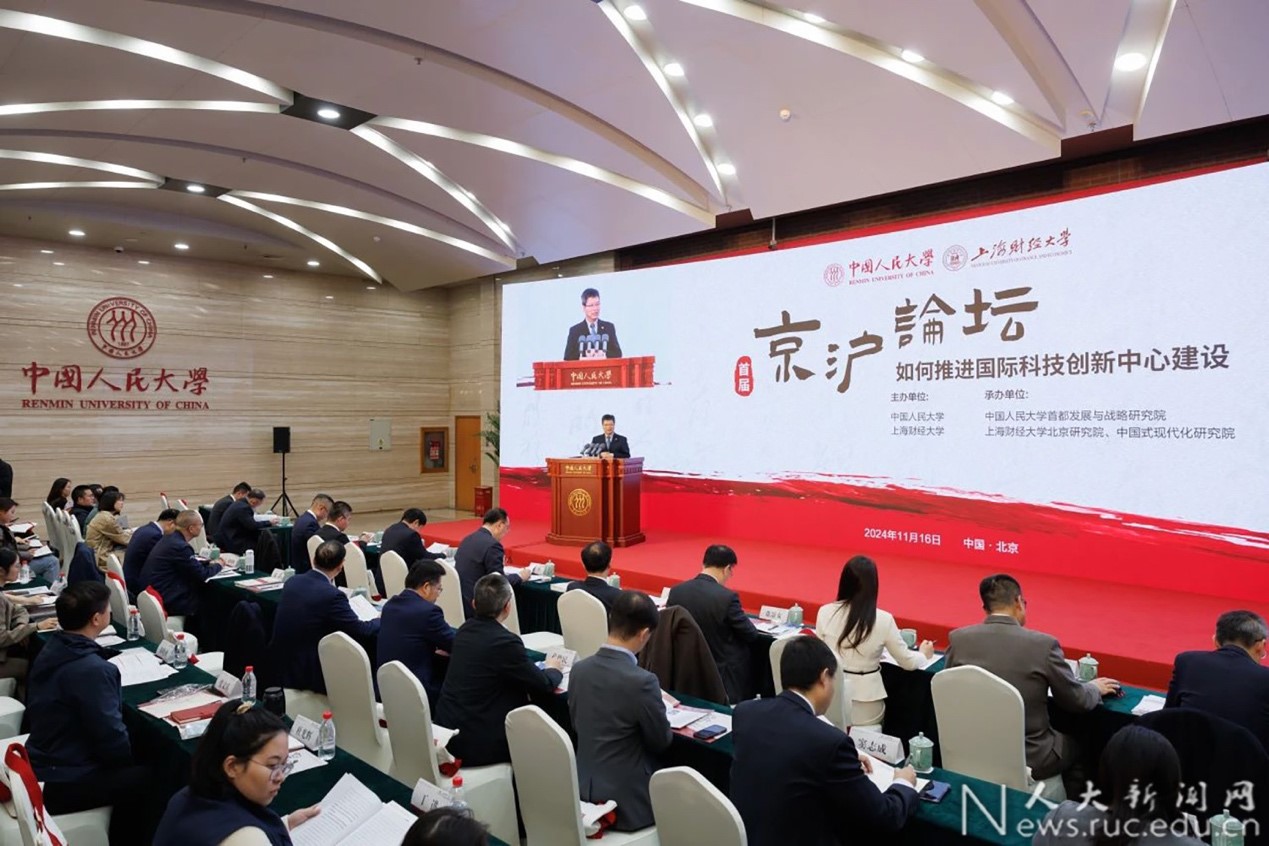
During the forum, two key reports were unveiled: Progress, Challenges, and Recommendations for Building Beijing into a World-Leading International Science and Technology Innovation Center and Shanghai’s Development as a Globally Influential Science and Technology Innovation Center: Achievements and Prospects.
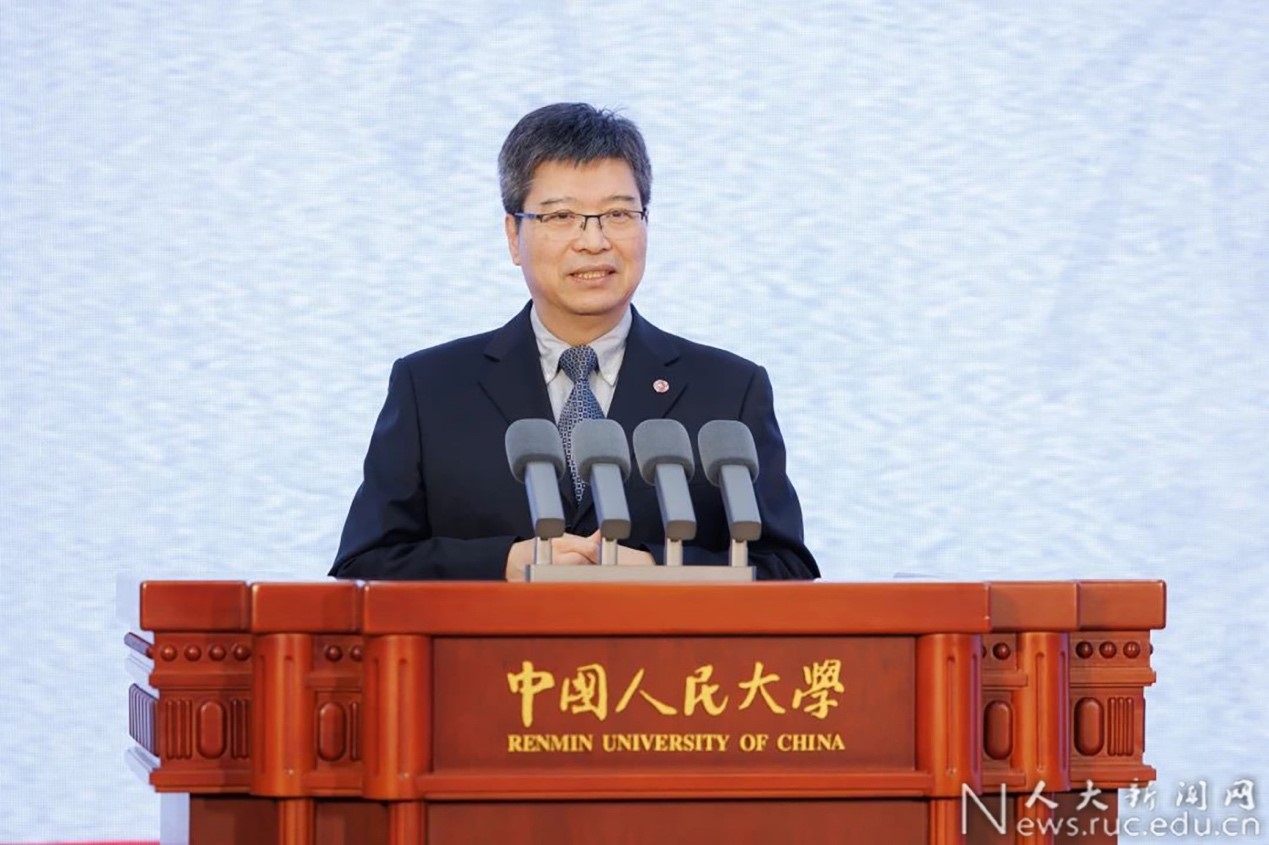
Lin Shangli, President of RUC, highlighted the importance of the strategic partnership established in January between RUC and SUFE to address national priorities. He emphasized the need to drive innovation, strengthen talent development, and advance practical applications of scientific research to support high-quality growth.
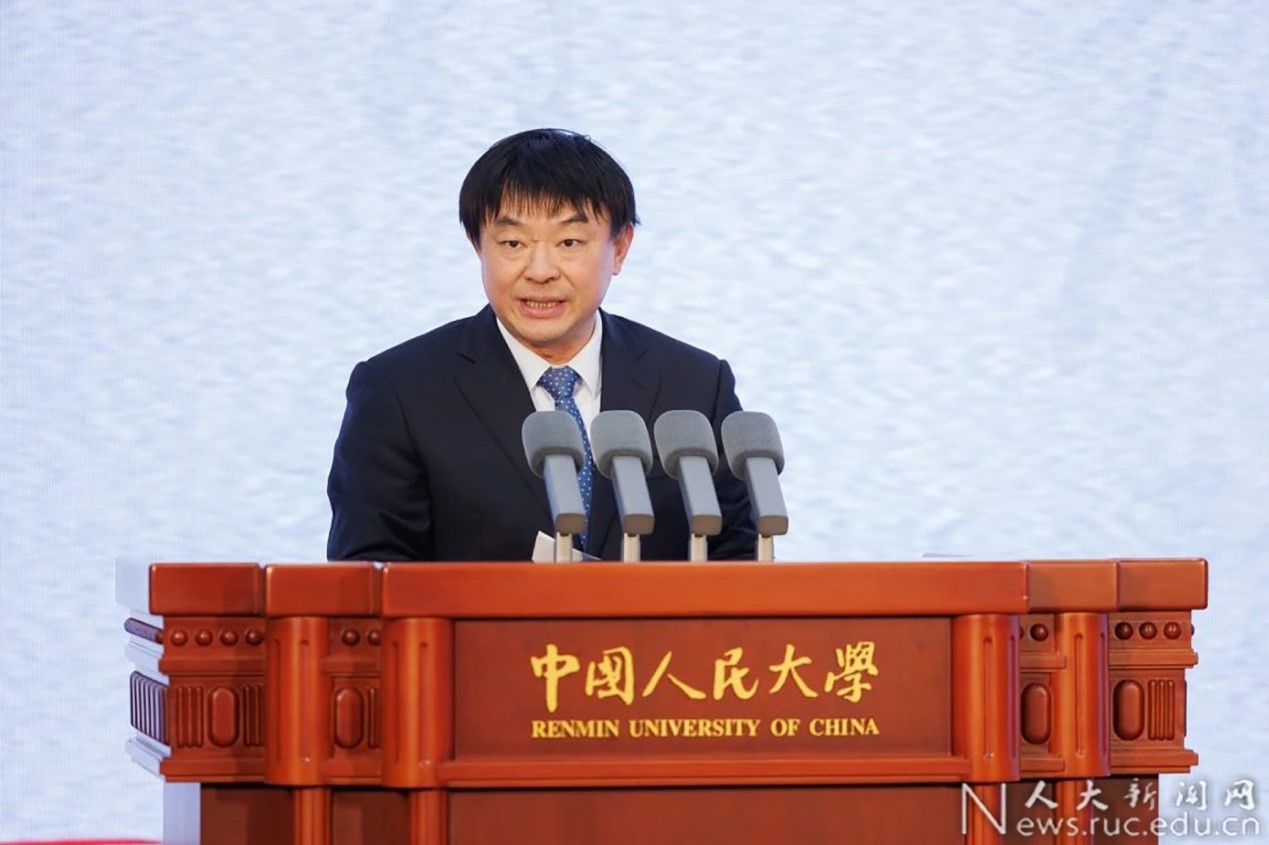
Ying Hanjie, Academician of the Chinese Academy of Engineering, President of Soochow University, and Director of the National Biochemical Engineering Technology Research Center, emphasized the rich technological and educational resources in both cities. He noted that the forum reflects their commitment to advancing national strategic goals and fostering high-level technological self-reliance.

Zhang Jing’an, Fellow of the International Eurasian Academy of Sciences and former President of Science and Technology Daily stressed the importance of centralized leadership in technological advancement. He advocated leveraging China’s unique strengths as a socialist state to tackle challenges brought by rapid technological progress.
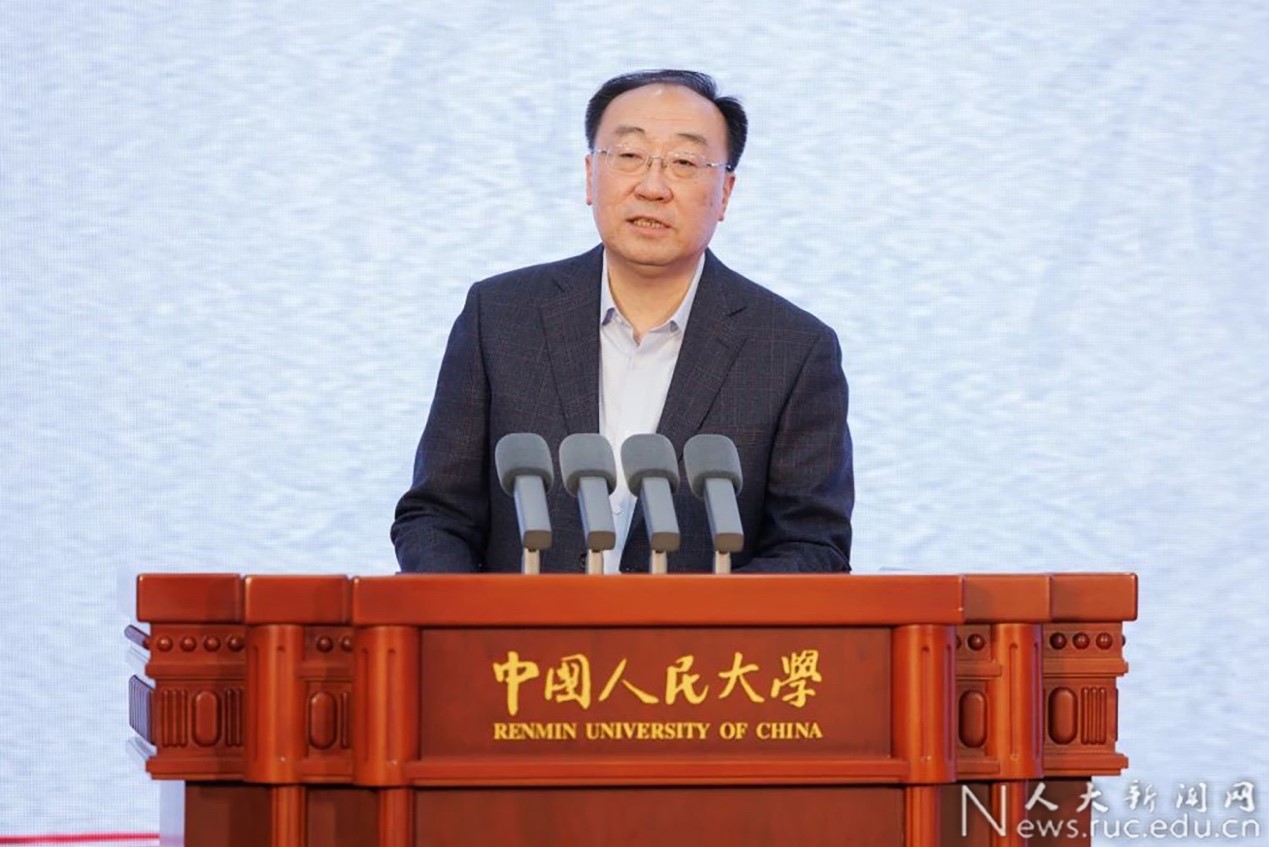
Zhang Ge, Secretary of Haidian District and Zhongguancun Science City Party Committee, pointed out that the 2023 International Science and Technology Innovation Center Index ranked Beijing and Shanghai among the world’s top ten cities for innovation. He urged closer collaboration between the two cities to share best practices, develop synergies, and jointly shape a vibrant future.
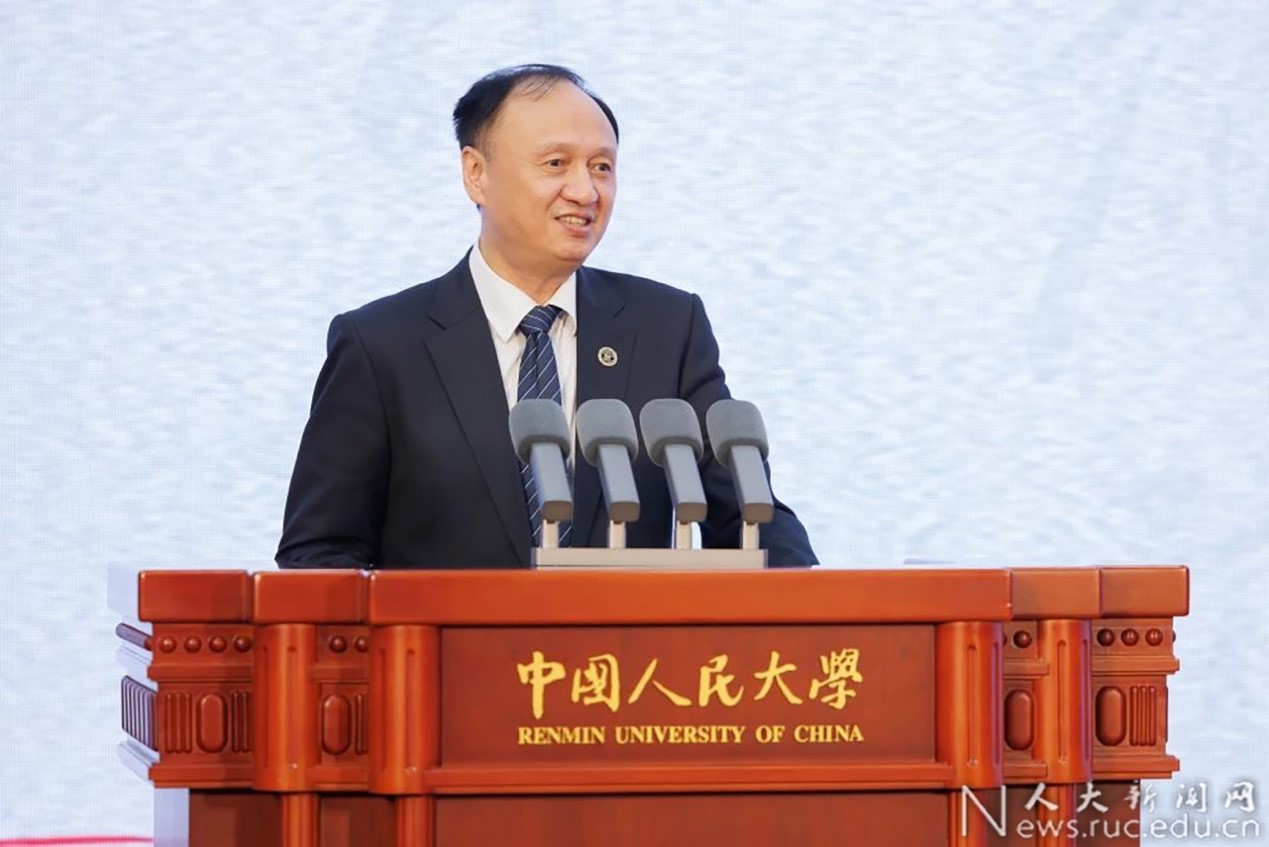
Xu Tao, Party Secretary of SUFE, called the forum an essential collaborative initiative under the universities’ strategic cooperation framework. He underscored its goal of leveraging the strengths of both institutions to better serve national development and societal progress.
The forum featured thematic speeches from experts across academia, industry, and government. Dou Zhicheng, Vice Dean of the Gaoling School of Artificial Intelligence of RUC gave a speech on innovation and talent cultivation in the age of AI. Gan Chunhui, Vice President of Shanghai Academy of Social Sciences, gave a speech on strengthening the foundational role of innovation centers. Guo Tiecheng, Senior Researcher of China Institute of Science and Technology Information, gave a speech on new approaches to building international innovation hubs. Liu Zhiyang, Dean of the Research Office of SUFE, gave a speech on the role of entrepreneurial scientists in driving new productive forces. Feng Hua, Director of Industrial Innovation Institute of Beijing Jiaotong University gave a speech on accelerating innovation through digital economy and industrial integration in Beijing and Shanghai. Industry representatives, including Ren Haitao from Baidu, discussed the role of enterprises in advancing innovation and the transformative potential of AI technologies. Ge Yunrui, Director of Government Affairs at Shanghai Yufeng Future Aviation Technology Co., Ltd., discussed Baidu's artificial intelligence and large model industry development and education innovation practices.
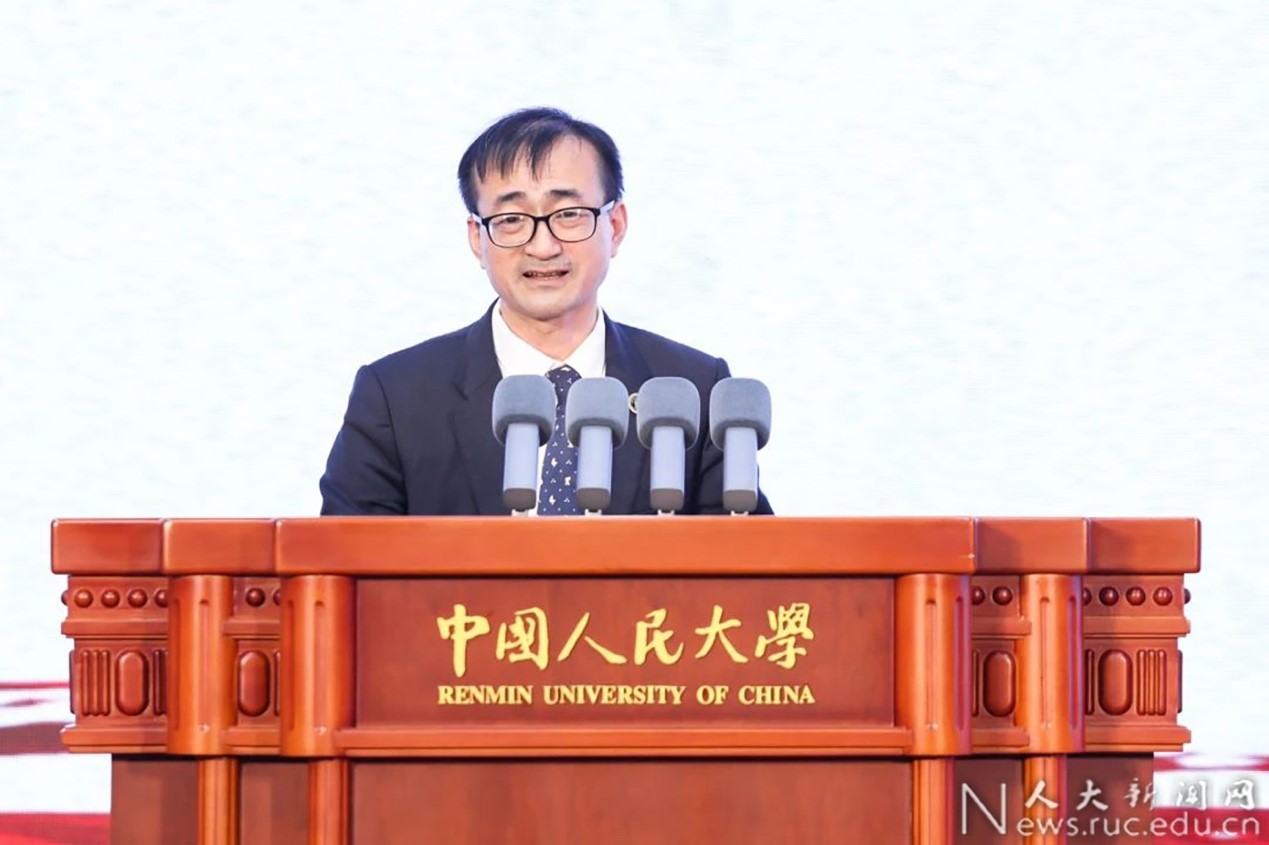
Liu Yuanchun, President of SUFE, delivered a closing address, noting that the forum is a milestone in Beijing-Shanghai collaboration to advance international science and technology innovation. By combining the strengths of academia, business, and government, the forum sets a precedent for deeper coordination between the two cities.
Liu emphasized that this joint effort by RUC and SUFE exemplifies innovation-driven development and provides valuable insights for enhancing regional coordination and tackling technological challenges. He called for continued collaboration to support China’s vision for balanced regional development and global leadership in science and technology.


